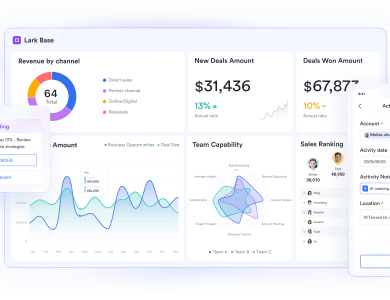5 Factors That Impact Your Mortgage Interest Rate

Planning to buy a new home and want to get a home loan at lower interest rates? Worry not, here are some key factors that can impact your mortgage interest rates. By knowing these, you can better prepare yourself for the home-buying process.
1.Credit Score
Lenders always check your credit score before approving your loan, and they view a high credit score as an indicator of lower risk, which ultimately leads to lower interest rates. On the other hand, lower credit scores demonstrate a higher risk, resulting in a higher interest rate to compensate the lender for the perceived risk.
Therefore, before applying for a mortgage, it is essential to have a strong credit history. This will ensure the lender that you have consistently repaid your debts on time and are less likely to default on the mortgage.
2.Loan-to-Value (LTV) Ratio
A lower LTV seems less risky to the lender, as the property’s value is much greater than the amount of the loan you have borrowed. This reduces the likelihood of being in negative equity, resulting in lower mortgage interest rates.
On the other hand, a high LTV means that you are borrowing money equal to a large percentage of the property’s value. This increases the lender’s risk, leading to higher interest rates on the loan.
3.Interest Rate Type
Interest rates are of different types, each with unique terms and conditions. For example, fixed mortgages offer stability and predictability. On the other hand, variable-rate mortgages provide the potential for lower interest rates but also carry the risk of increased payments.
Therefore, when acquiring a home loan, you must choose the interest rate type that best matches your needs and financial goals. This is essential to reduce your stress and prevent potential problems later.
4.Loan Term
To secure lower interest rates on your mortgage, consider opting for a shorter loan term, as longer terms typically result in higher rates. Lenders are more willing to offer favorable terms and conditions on shorter loans, as they do not have to wait for too long to get the money back.
However, before applying for the loan, you must calculate your estimated repayments to see how refinancing can help you save money. For this, you can use any online mortgage repayment calculator. This will provide you with valuable insights and help you make informed decisions for your repayment schedule. However, to get the best results, you must choose an accurate calculator from a reliable service provider, such as Aussie Home Loans.
5.Down Payment
Making a larger down payment allows you to enjoy lower mortgage interest rates. This not only reduces the principal balance of your loan but also helps you save money in the long run.
Therefore, if you are planning to acquire a loan for purchasing a new home, try to make a large down payment. Because in this case, the lenders are more likely to offer lower interest rates and favorable terms and conditions




